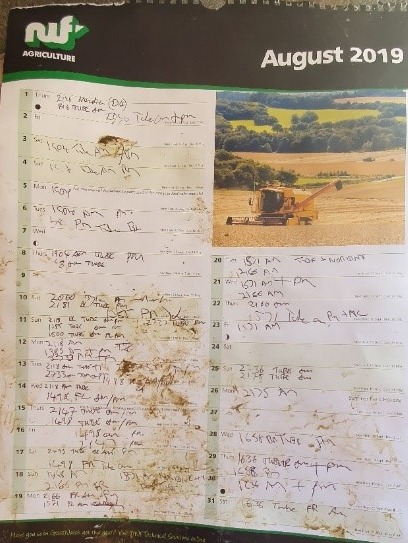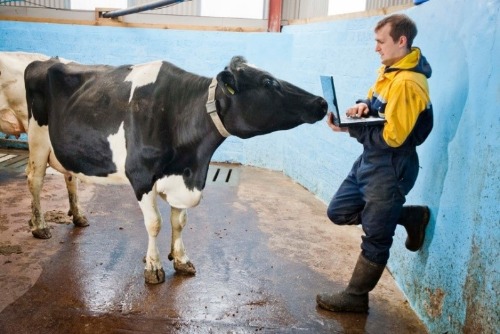Two Bloomsbury SET grants awarded to Dr Mehroosh Tak
Congratulations to Dr Mehroosh Tak, who with colleagues, has been awarded two Bloomsbury SET grants, to work on the following two projects:
Assessing social acceptability and economic impact of centralised antibiotic usage data collection for GB cattle farms
Accurate data capture systems on antibiotic usage (ABU) at farm level are needed to develop targeted surveillance to truly understand the impact of ABU on the dairy industry and on the development of resistance within and between the dairy and human populations. In the dairy sector, no such centralised system exists. Indeed, based on the investigators previous research it is approximated that 40% of farmers use various software to document their on-farm use of antibiotics in GB, whilst 60% still use paper. Legislation requires the collection of actual ABU data per animal species through semi-automated harmonised systems by 2023.
In the UK, the Veterinary Medicines Directorate currently rely on pharmaceutical sales and a sub-section of veterinary sales data to provide information on ABU within the dairy industry. Previous work on improving data capture in the dairy industry has identified inconsistencies with current recording platforms. Adjustments to these platforms are needed for systematic collection of ABU data.
The aim of this project is to assess the social acceptability and economic impact of a centralised ABU data capture tool for cattle farms in different contexts in the UK. In order to do so, we will review social acceptability through interviews with farmers and conduct a cost-benefit analysis of data collection through a centralised tool. The project will be based on the ethos of bidirectional knowledge exchange with cattle farmers and levy boards including AHDB and VMD.


Enhancing Political Economy Research Skills to Tackle Infectious Disease and AMR Challenges
The ways in which economic, social, cultural and political factors determine individual and community behaviours are vital factors in addressing issues related to infectious disease and antimicrobial resistance. However, interdisciplinary approaches to natural science research are not as commonplace as they could be, and too often social science techniques are employed as “bolt-ons” due to a lack of comprehensive understanding of the methodological suitability. Such “bolt-on” practices can give rise to biases that are generated during the data collection process, which compromises external validity, as well as interpretation and application of such academic research; this in turn generates negative spill over effects in terms of welfare, policy development, and implementation of best practice.
With this is mind, this project aims to train researchers investigating infectious disease and Antimicrobial resistance (AMR) by equipping them with tools, theory and methods from political economy and heterodox economics in order to critically examine social, economic, cultural and political relations that govern human behaviours and policymaking in low and middle-income countries (LMICs). The module will emphasise the value of having interdisciplinary social sciences leadership and research embedded in natural sciences vision of zoonosis and infection control, and for protecting and preparing societies against emergence of future epidemics/pandemics with severe adverse health and socio-economic impact. Political economy studies how relations of power shape economic practices and outcomes. Taking a political economy approach entails considering how political choices, institutional structures, and forms of governance influence economic phenomena and how the existing economic and governance structures are reflective of ‘deeper’ determinants, such as colonial settlement, political clientelism, physical geography and natural resource endowments, the disease ecology of societies, and social differentiation among other factors.
Political economy research has long highlighted the need for such historical and spatial understanding of the role and functioning of the above-mentioned ‘deep’ determinants of development. The course will provide researchers with the knowledge to explore the economic, social, political and cultural dimensions that shape policy making and its effects, rather than pursuing uniform, “one size fits all” approaches in preparing and protecting against AMR and zoonotic diseases in LMICs. The project is a collaboration between RVC and SOAS. Dr. Sara Stevano from the Department of Economics at SOAS will be a lead contributor to the course, based on her expertise in feminist political economy of development and exploration of mixed methods in political economy research. The project provides an exciting opportunity to develop new research tools from political economy discipline to better understand human-animal disease interaction. Dr. Sara Stevano, Lecturer in economics at SOAS said 'The ongoing COVID-19 pandemic has clearly exposed the critical need to consider health and disease through interdisciplinary approaches. I am very pleased to work with Dr Mehroosh Tak and her colleagues at RVC to develop a course aimed at equipping researchers on infectious disease and AMR with knowledge and tools to capture the interconnections between biological, social, economic and political dimensions underpinning the transmission and management of infectious disease.'
You may also be interested in:
-
New RVC study reveals how dragonfly wings can inform engineering and robotics
A new study led by the Royal Veterinary College (RVC) and Imperial College London has revealed how …

